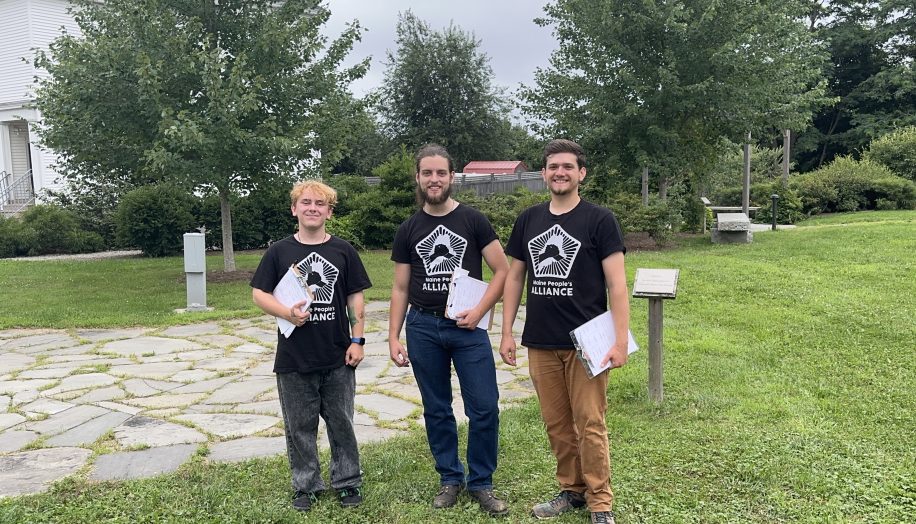Members of the New Jersey Resources Project (NJRP) and Maine People’s Resource Center, both part of the People’s Action Institute (PAI) national network of grassroots groups, knocked on thousands of doors to build support for wind power projects in a collaboration with PAI’s Deep Canvass Institute, the New Conversations Initiative and the Climate Advocacy Lab.

The results of both canvasses are detailed in a new webinar and report published by the four organizations.

NJRP was formed 15 years ago to help residents of the Jersey Shore recover from Hurricane Sandy, and has since expanded its efforts statewide.
“I saw a report that showed areas in New Jersey that would be underwater in the future if we don’t move toward cleaner energy, and my house was on the map!” said Jody Stewart, a Jersey Shore resident and longtime member of NJRP who joined the effort to reach out to her neighbors.
In New Jersey, as in Maine, the projects have sought to counteract misinformation campaigns funded by out-of-state fossil-fuel interests.
“If you Google ‘offshore wind Maine’ you’ll get a thousand different things,” said Joe Hupperich, one of the Maine canvassers and a field organizer with the Maine Labor Climate Council.
In both places, the efforts rely on deep canvassing, a technique which is proven to be highly effective in changing hearts and minds about divisive topics by listening, and creating a space in which participants can connect around their values and motivations.
“If you have somebody with good information coming to you explaining in real layman’s terms what the opportunities are, what the benefits are, and even what the cons are, folks are gonna sit there and be able to soak it in a little more,” said Hupperich, who was trained in the technique by People’s Action Institute.
New Jersey began its journey towards offshore wind farms as a source of sustainable clean energy and jobs in 2010, and Governor Phil Murphy signed an executive order to open the project to bids in 2018, but the project has faced setbacks since President Trump signed a moratorium on new offshore wind development earlier this year. A Rutgers University study found the proposed wind project would create 20,000 jobs in New Jersey.
In Maine, which has some of the strongest offshore winds in the world, the U.S. Department of Energy abruptly suspended $15.8 million in funding to the University of Maine for offshore wind research, even though a proposed offshore wind port in Searsport could generate $6.6 billion in new economic activity and create more than 6,000 new jobs.
Meanwhile, a Government Accountability Office (GAO) report produced at the request of lawmakers who oppose wind power found that, contrary to the arguments advanced by fossil fuel interests, a proposed wind farm only presents a small risk to marine wildlife, and recommended opening a new office to oversee new offshore wind development in the Northeast.